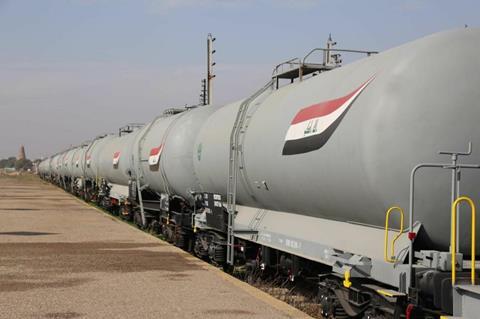
IRAQ: Prime Minister Mohamed Shia Al-Sudani has unveiled plans for a rail and road corridor to Europe via Turkey.
The 1 200 km line was announced on May 27 during a conference with transport ministry officials from Iran, Jordan, Syria, Qatar, Kuwait, Oman, Saudi Arabia and the UAE. The cost is put at US$17bn, including a planned parallel road.
‘We see this project as a pillar of a sustainable non-oil economy’, Al-Sudani said.
Inviting the countries present to become part of the project, he said the proposed line would boost regional economic integration and create an important trade route for Iraq’s neighbours.
The planned line would start at the container port of Al-Faw in Basra, which is in the process of being expanded, and run to border with Turkey.
Al-Sudani did not clarify whether the line would use the existing alignments between Baghdad, Tikrit and Mosul, new alignments parallel to the existing lines or a combination of both.
From Mosul the line would continue close to the Rabia border crossing with Syria, from where a new alignment would be constructed to the Turkish border crossing at Ovaköy.
Although envisaged mainly as a freight corridor, the railway would include 15 passenger stations.
The project assumes that Turkey will extend and modernise its existing line from Gaziantep and Nusaydin to Ovaköy, by-passing the existing rail route to Iraq which passes through northeast Syria.
Speaking to the Turkish media on June 6, Turkey’s ambassador to Baghdad Ali Rıza Güney confirmed that the project had been discussed during Al-Sudani’s visit to Ankara in March this year, and that technical meetings and studies relating to the project were continuing.
Plans to improve the rail link between Turkey and Iraq have been under discussion since 2004, following the toppling of former Iraqi dictator Saddam Hussein.
The two countries had agreed to establish a technical committee between national railways TCDD and IRR to develop the existing Nusaybin – Qamişli (Syria) – Mosul line to carry six trains a day and enable the resumption of regular freight services between Gaziantep and Baghdad and passenger services between Istanbul and Baghdad.
However, all services between the countries were halted more than a decade ago following the start of the Syrian civil war.

















